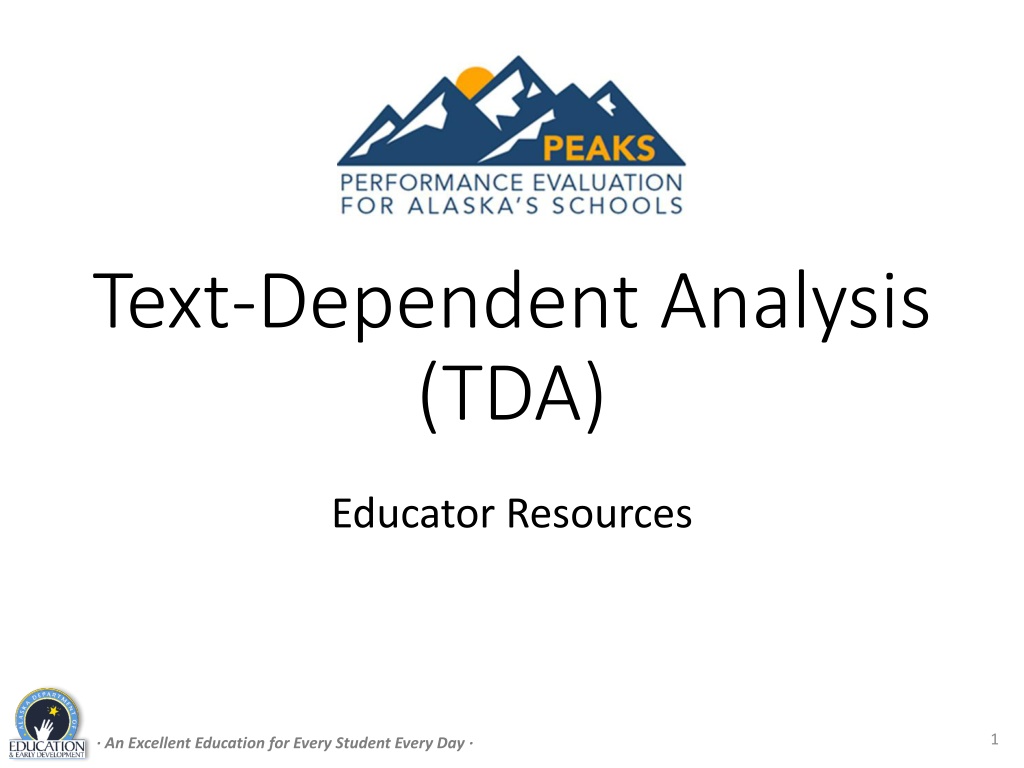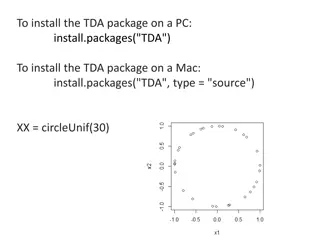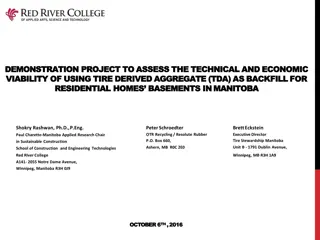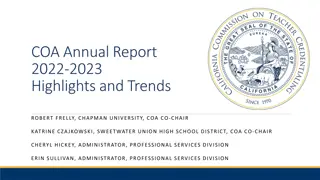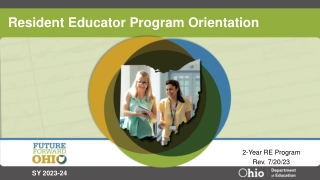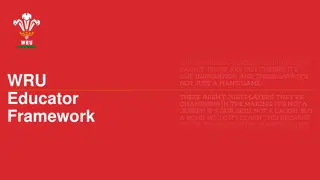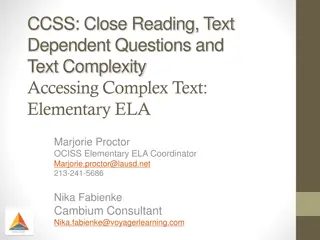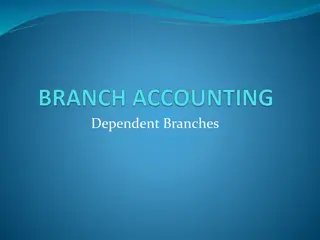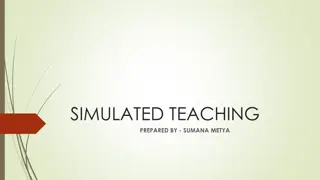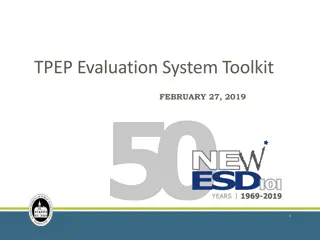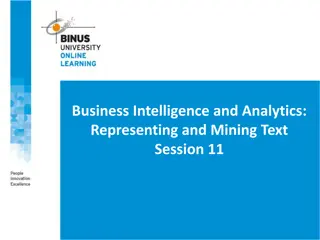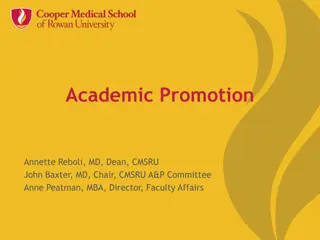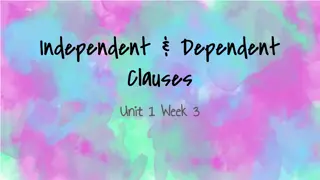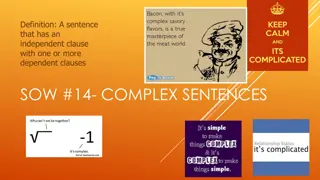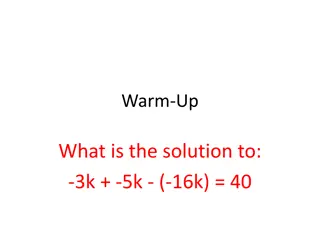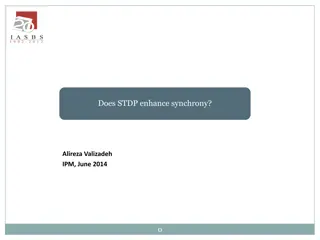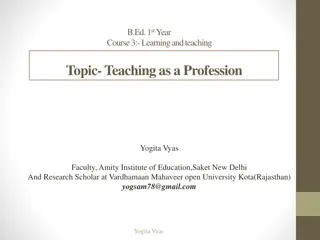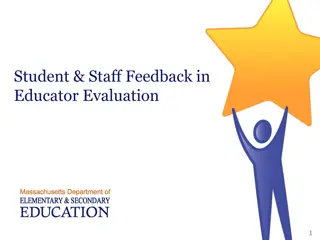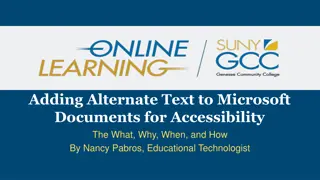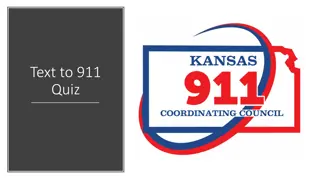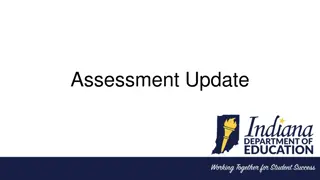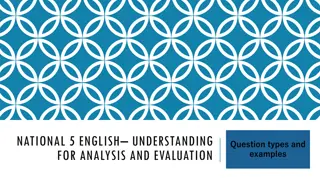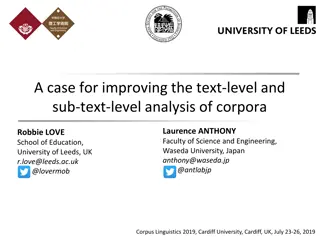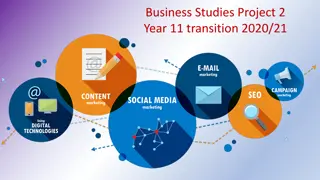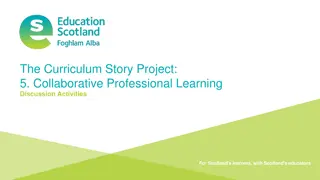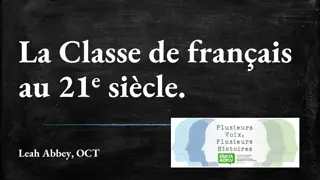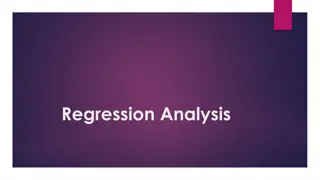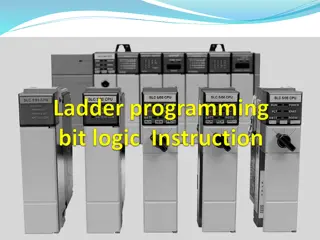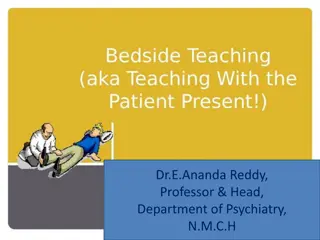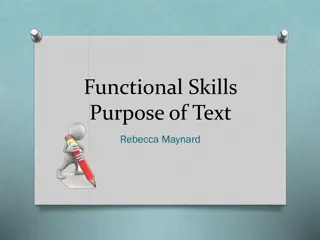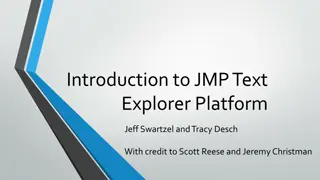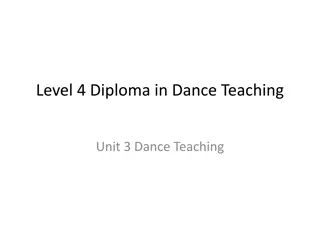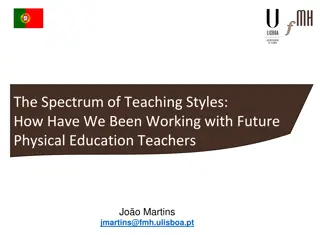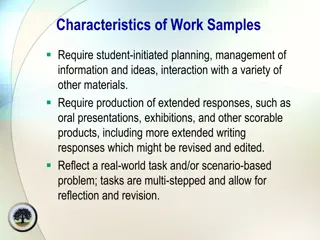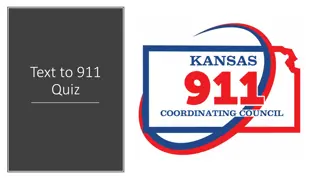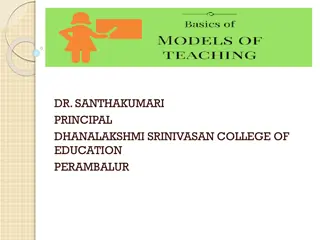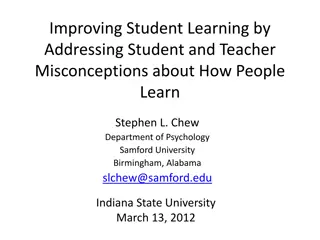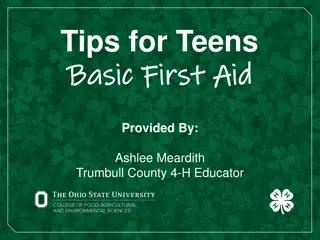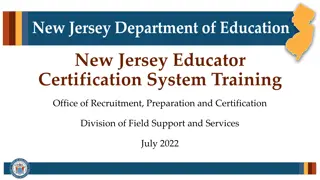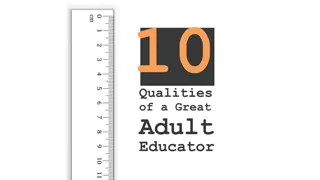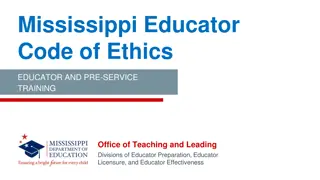Comprehensive Text-Dependent Analysis (TDA) Educator Resources for Effective Teaching
Explore a wide range of resources focused on Text-Dependent Analysis (TDA) strategies, assessment items, and instructional strategies to enhance student learning. From test design standards to recommended test times, this collection provides a detailed overview of incorporating TDA in education.
Download Presentation

Please find below an Image/Link to download the presentation.
The content on the website is provided AS IS for your information and personal use only. It may not be sold, licensed, or shared on other websites without obtaining consent from the author. Download presentation by click this link. If you encounter any issues during the download, it is possible that the publisher has removed the file from their server.
E N D
Presentation Transcript
Text-Dependent Analysis (TDA) Educator Resources 1 An Excellent Education for Every Student Every Day
Overview Test Design Standards Text-Dependent Analysis Strategies Close Reading Text-Dependent Questions Writing Resources 2 An Excellent Education for Every Student Every Day
Text- Dependent Analysis (TDA) Text- Dependent Questions Assessment item Instructional strategy to address standards 3 An Excellent Education for Every Student Every Day
The Assessment Text-Dependent Analysis 4 An Excellent Education for Every Student Every Day
Estimated Test Time for ELA Estimated Total Test Time Grade Level Grade 3 90 minutes Grade 4 115 minutes 120 minutes Grades 4 and 5 120 minutes Grades 6 - 8 120 minutes Grade 9 5 An Excellent Education for Every Student Every Day
ELA Test Design Grades 3-5 Recommended Time Per Part Test Grade 3 Part 1: Reading 45 Minutes Grade 3 Part 2: Writing 30 Minutes Grades 4 5 Part 1: Reading 45 minutes Grades 4 5 Part 2: Reading and TDA 30 Minutes Grades 4 5 Part 3: Writing 25 Minutes 6 An Excellent Education for Every Student Every Day
ELA Test Design Grades 6-9 Recommended Time Per Part Test Grades 6-8 Part 1: Reading and TDA 75 Minutes Grades 6-8 Part 2: Writing 30 Minutes Grade 9 Part 1: Reading and TDA 85 minutes Grade 9 Part 2: Writing 35 minutes 7 An Excellent Education for Every Student Every Day
Key Ideas and Details Literary Text Informational Text RL-1, RL-2, RL-3 RI-1, RI-2, RI-3 Standards Craft and Structure Literary Text Informational Text RL-4, RL-5, RL-6 RI-4, RI-5, RI-6 Writing Integration of Knowledge and Ideas RI-7, RI-8, RI-9 W-9 8 An Excellent Education for Every Student Every Day
What is a Text-Dependent Analysis? Text-dependent analysis require close reading of a text. 9 An Excellent Education for Every Student Every Day
What is a Text-Dependent Analysis? These questions require students to provide evidence from the text to draw inferences based on what the text says in order to support an analysis. 10 An Excellent Education for Every Student Every Day
What is a Text-Dependent Analysis? This is different from reading comprehension questions which require students to read to get the gist of the text. Not Text-Dependent Analysis Question: Text-Dependent Analysis Question: In the text there once was a curious bird who says to Tortoise, And you showed yourself, too. Describe a time when you showed yourself you could do something. The text begins with: There once was a curious bird who wondered, What can a small bird be? Write an essay that analyzes why the authors chose to begin the text with this question. Use evidence from the text to support your response. 11 An Excellent Education for Every Student Every Day
Depth of Knowledge and TDA Questions Depth of Knowledge (DOK) Description DOK 1 Recall and Reproduction Basic recall of concepts, definitions, facts, and processes Simple skills and abilities or recall of one right answer Answering a Level 1 item can involve following a simple well-known procedure or formula DOK 2 Basic Application of Skills and Concepts Includes the engagement of some mental processing beyond recalling or reproducing a response Items require students to make some decisions as to how to approach the question or problem acting on the information These actions imply more than one mental or cognitive process/step, but there is still one right answer DOK 3 Strategic Thinking Requires deep understanding as exhibited through planning or sequencing steps Requires some decision making with justification and evidence Assessment items have more than one possible answer and are abstract, complex, or non-routine DOK 4 Extended Thinking Requires high cognitive demand and is very complex An investigation or application that requires time to research, think, or process multiple conditions of the problem Non-routine manipulations or connections across disciplines/content/areas/multiple sources 12
Instruction Text-Dependent Questions 13 An Excellent Education for Every Student Every Day
Remember the 3 Shifts? General Shifts in Instruction 1. Building knowledge through content-rich nonfiction and informational texts in addition to literature. 2. Reading and writing grounded in evidence from the text. 3. Regular practice with complex texts and its academic vocabulary. 14 An Excellent Education for Every Student Every Day
Instructional Shift #2 Reading and writing grounded in evidence from the text. Text- Text- Reading for Evidence Dependent Questions Dependent Analysis 15 An Excellent Education for Every Student Every Day
Sound Reading Instruction K-3 Instructional Content Instructional Design Phonemic Awareness Phonics Fluency Vocabulary Comprehension Explicit instructional strategies Coordinated instructional sequences Ample practice opportunities Aligned student materials 16 An Excellent Education for Every Student Every Day
How do we get students ready for reading? For reading, students must grasp information, arguments, ideas, and details based on careful attention to the text. Close Reading Annotation of Text Reading Strategies Text-Dependent Questions 17 An Excellent Education for Every Student Every Day
How do we get students ready for writing? For writing, students must write to present analyses, well-defended claims, and clear thoughts using textual evidence. Prewrite Publish Write Edit Revise 18 An Excellent Education for Every Student Every Day
How do we get students ready? Educators become masterful at using text- dependent questions to help students achieve these objectives. Close read the passage Re-read the question Compose a response Read for the gist Read the prompt Organize thoughts 19 An Excellent Education for Every Student Every Day
Text-Dependent Analysis Text-Dependent Analysis and Text- Dependent Questions Ask questions that prompt students to synthesize answers based on specific evidence within a reading passage and demonstrate their ability to interpret the meaning behind that evidence. 20 An Excellent Education for Every Student Every Day
Text-Dependent Questions Answered through close reading Evidence comes from text, not information from outside sources Understanding beyond basic facts Not recall! Source: Fisher and Frey Text-Dependent Questions An Excellent Education for Every Student Every Day 21
Progression of Text-Dependent Questions Source: Fisher and Frey Text-Dependent Questions An Excellent Education for Every Student Every Day 22
Progression of Text-Dependent Questions Source: Fisher and Frey Text-Dependent Questions 23 An Excellent Education for Every Student Every Day
General Understandings Standards RI.1 and RL.1 Overall view Sequence of information Story arc Main claim and evidence Gist of passage Source: Fisher and Frey Text-Dependent Questions An Excellent Education for Every Student Every Day 24
Key Ideas Standards RI.2 and RL.2 Search for nuances in meaning Determine importance of ideas Find supporting details that support main ideas Answers who, what, when, where, why, how much, or how many Source: Fisher and Frey Text-Dependent Questions An Excellent Education for Every Student Every Day 25
Vocabulary and Text Structure Standards RI.4, RI.5 RL.4, RL.5 Denotation Connotation Bridges literal and inferential meanings Shades of meaning Figurative language How organization contributes to meaning Source: Fisher and Frey Text-Dependent Questions An Excellent Education for Every Student Every Day 26
Authors Purpose Standards RI.6, RL.6 Genre: Entertain? Explain? Inform? Persuade? Point of view: First-person, third-person limited, omniscient, unreliable narrator Critical Literacy: Whose story is not represented? Source: Fisher and Frey Text-Dependent Questions 27 An Excellent Education for Every Student Every Day
Inferences Probe Each argument in persuasive text Each idea in informational text Each key detail in literary text Observe how these build a whole. Standards RI.3, RI.7, RL.3, RL.7 Source: Fisher and Frey Text-Dependent Questions 28 An Excellent Education for Every Student Every Day
Opinions, Arguments, and Intertextual Connections Claims Evidence Author s opinion and reasoning (K-5) Counterclaims Ethos, Pathos, Logos Rhetoric Standards RI.8, RI.9, RL.8, RL.9 Source: Fisher and Frey Text-Dependent Questions An Excellent Education for Every Student Every Day 29
Develop Text-Dependent Questions Do the questions require the reader to return to the text? Do the questions require the reader to use evidence to support his or her ideas or claims? Do the questions move from text-explicit to text-implicit knowledge? Are there questions that require the reader to analyze, evaluate, and create? Source: Fisher and Frey Text-Dependent Questions 30 An Excellent Education for Every Student Every Day
Writing Expectations Introduction Development Conclusion Organization Transitions Language Conventions 31 An Excellent Education for Every Student Every Day
Writers Checklist Tips to help students with the writing process Available as a tool for the computer-based assessment Embedded in the question on the paper-based assessment 32 An Excellent Education for Every Student Every Day
Scoring Rubric 4 point scale 0 lowest 4 highest Holistic rubric A single score based on the overall judgement of student work 33 An Excellent Education for Every Student Every Day
Additional Resources TDA Fact Sheet TDA FAQs TDA Educator Resources 34 An Excellent Education for Every Student Every Day
Contact Us Deb Riddle, Division Operations Manager, Student Learning deborah.riddle@alaska.gov Isaac Paulson, Assessment Administrator isaac.paulson@alaska.gov Kari Quinto, PEAKS Program Coordinator kari.quinto@alaska.gov Rachel Schweissing, District Test Coordinator Liaison rachel.schweissing@alaska.gov 35 An Excellent Education for Every Student Every Day
